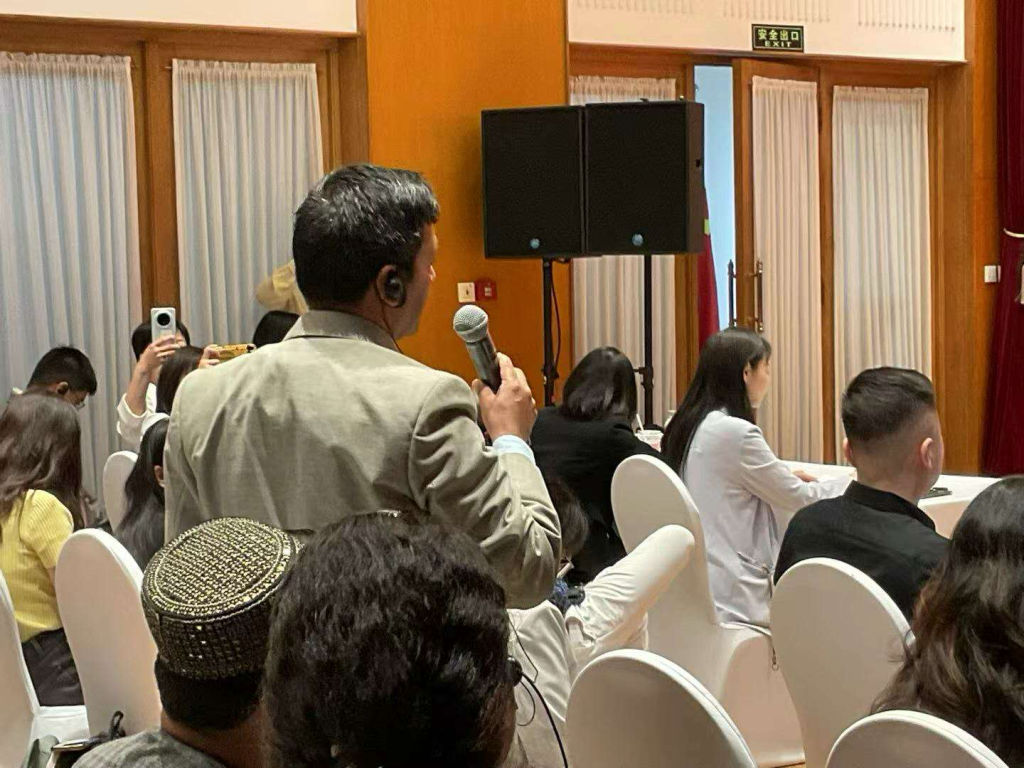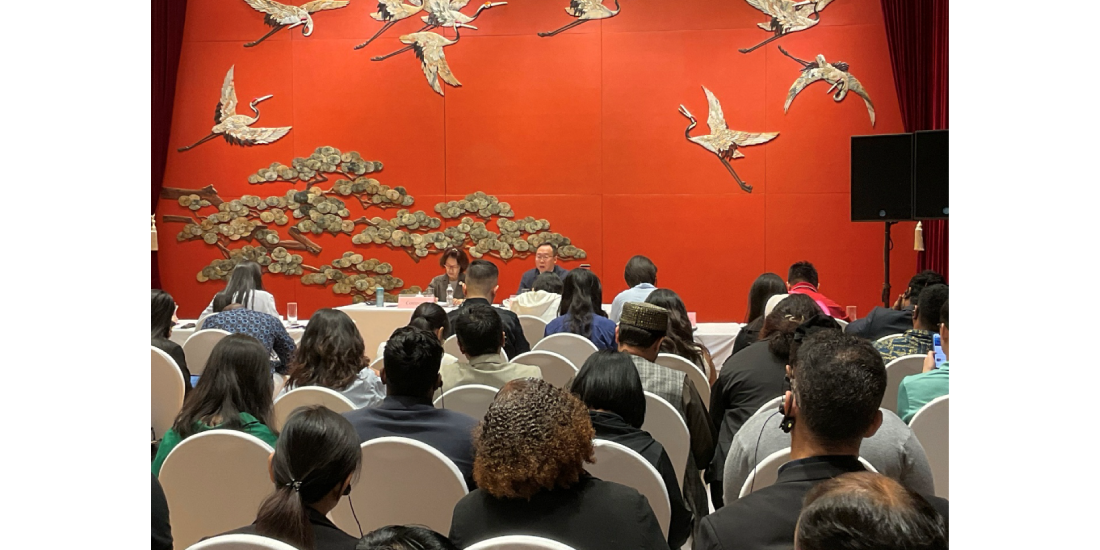CHINA attaches great importance to its diplomatic relations as it deems it crucial for the building of a community for a shared future for mankind, and also for its own development, prosperity and national security.
This was highlighted by the Director General of the Department of Asian Affairs in China’s Ministry of Foreign Affairs, Liiang Jianjun at a press briefing for local and international journalists in Beijing on Tuesday 20 May.
Liiang focused on “China’s Philosophy and Practice on Neighborhood Diplomacy.”
He said as the official responsible for China’s bilaterial cooperation in the South-East Asian region, he was pleased to address the media on China’s diplomacy, particularly on its bilaterial relations with its neighborhood countries.
“Right now, China is the largest country with the largest number of neighboring countries. We have 20 + countries in our neighborhood, including four countries in North East Asia, 11 in South East Asia, including East Timor. We have eight neighboring counties in South Asia, including Bangladesh, Maldives, Nepal, and five countries in Central Asia. China internally has a saying that a distant relative is no better than a close neighbor,” he said.
Liiang said President Xi Jinping’s state to Russia after the 18th Chinese Communist Party (CPC) National Congress, visit to Vietnam and Laos after the 19th CPC National Congress, Indonesia and Thailand after the 20th CPC National Congress, back-on-back state visits to Vietnam, Malaysia and Cambodia in April this year, visit to Myanmar within 18 hours after it was struck by the earthquake in March this year, talks with the Sultan of Brunei in Beijing in February this year were all aligned with Beijing’s conviction that neighboring countries are also crucial to China’s development and prosperity.

He also highlighted President Xi’s back-on-back visit to Vietnam, Malaysia and Cambodia in April this year in a short span of five days, the statements he jointly issued with his counterparts in these countries and the more than 30 activities he attended then were also aligned to this conviction, and so was China’s hosting of the Central Conference on Work Relating to Neighboring Countries in Beijing in April.
“They are a key to safeguarding our national security and a top priority in the overall planning of China’s diplomacy. They are also key to promoting the building of a community with shared future for mankind. In the past, we said that neighboring countries were our top priority. This time around, we further introduced this connotation.
“Neighboring countries are a top priority in China’s diplomacy. They are always our top priority in diplomacy. China’s relationship with each and every neighboring country is becoming furthered and is a two-way process. It highlights that fact that both sides share the same destiny and interests,” Liiang added.
Elaborating on Xi’s first to Myanmar after it was struck by the earthquake in March, Liiang said “the President arrived in the worst hit area along with Chinese rescue teams 18 hours after the quake struck and he rescued the first survivor from the trap and were the first to convey condolences to Myanmar government.
“This proves that China is a good neighborhood friend that can be trusted and relied up at critical times,” he added.
President Xi proposed the concept of Building a Community With Shared Future for Mankind, emphasizing global cooperation, mutual respect and sustainable development. This concept serves as a guiding principle in the way China conducts its diplomacy.
By DELI-SHARON OSO
In Beijing, China









